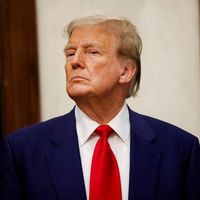US Is Using IAEA’s Grossi To Exert Pressure On Iran, Says IRGC Paper
IRGC-affiliated media in Iran has suggested that the US is using IAEA chief Rafael Grossi to exert pressure on Tehran to return to nuclear talks in Vienna.
Javan daily newspaper published a commentary by Hadi Mohammadi on Thursday that the United States is using the International Atomic Energy Agency (IAEA) to monitor Iran's nuclear activities and to inspect its nuclear installations on its behalf, based on the authority vested in the UN nuclear watchdog by the Non-Proliferation Protocol (NPT) and some of the clauses in the Iran nuclear deal, JCPOA.
The United States and the West benefit from the intelligence gathered by the IAEA for them free of charge, Mohammadi claimed in the commentary. Meanwhile, he opined that this intelligence gathering mechanism was badly harmed with the reduction in Iran's commitments under the JCPOA. However, the IAEA Chief is trying to get back the initial concessions given to the West by the JCPOA, Javan maintained.
Last December, Iran passed a law limiting IAEA’s monitoring access to its nuclear sites, demanding that the US should lift its sanctions. A limited and temporary deal is in place now, but Grossi has complained that Iran is curtailing his agency’s ability to do its job.
The commentary further stressed that in fact, it is the United States that is under ‘maximum pressure’ by Iran to return to the negotiations as it has failed to force Iran to make new concessions.
Javan insisted that there is no room for the inclusion of talks about Iran's missile programs in the new negotiations, and the West can only hope to harness Iran's nuclear program, but it needs to give concessions to make that possible.
It described Grossi's call for having a political discussion with Iran's Foreign Minister Hossein Amir-Abdollahian as naïve and warned the IAEA chief that Iran is not under any commitment to go beyond the discussion of technical matters within the frameworks of NPT. Mohammadi added that Grossi should know that the members of Tehran's new negotiating team are different from their predecessors.
The commentary said that Grossi can only talk with Iran's nuclear chief Mohammad Eslami rather than hoping to meet with the foreign minister. "He should distance himself from the idea of holding talks in Iran by proxy for the United States," the commentary said, adding that a chat with Eslami is the most he can get if he visits Tehran. The US, said the commentary, should forget about the division of labor with Grossi and instead should make concessions.
Meanwhile, in another article entitled "Winding in Washington," another IRGC media outlet likened Grossi to a clock that Washington has winded to make its moves in Tehran. This article also repeated the argument of the commentary about Grossi being used by the US as a tool to exert pressure on Tehran before starting the talks to revive the JCPOA.
The article added that Washington is also planning to use Grossi to exert pressure on other countries, including China, via the International Atomic Energy Agency. This was a reference to US officials' statements about asking China to stop buying oil from Iran.
Grossi asked to meet with Amirabdollahian following his meetings with US officials including Secretary of State Antony Blinken this week. During the meeting, Blinken said that Iran should remain committed to the verification of its nuclear activities, stop provocative actions and return to diplomacy.
Subsequently, Grossi told the Financial Times Monday that "a temporary arrangement for the International Atomic Energy Agency (IAEA) to monitor Iran’s nuclear sites was no longer intact." Grossi told the newspaper he wanted "an urgent meeting – 'contact at the political level' − with Iran’s foreign minister Hossein Amirabdollahian to discuss surveillance arrangements."
“I haven’t been able to talk to [Iran’s new] foreign minister,” Grossi told the FT. “I need to have this contact at the political level. This is indispensable. Without it, we cannot understand each other.”







